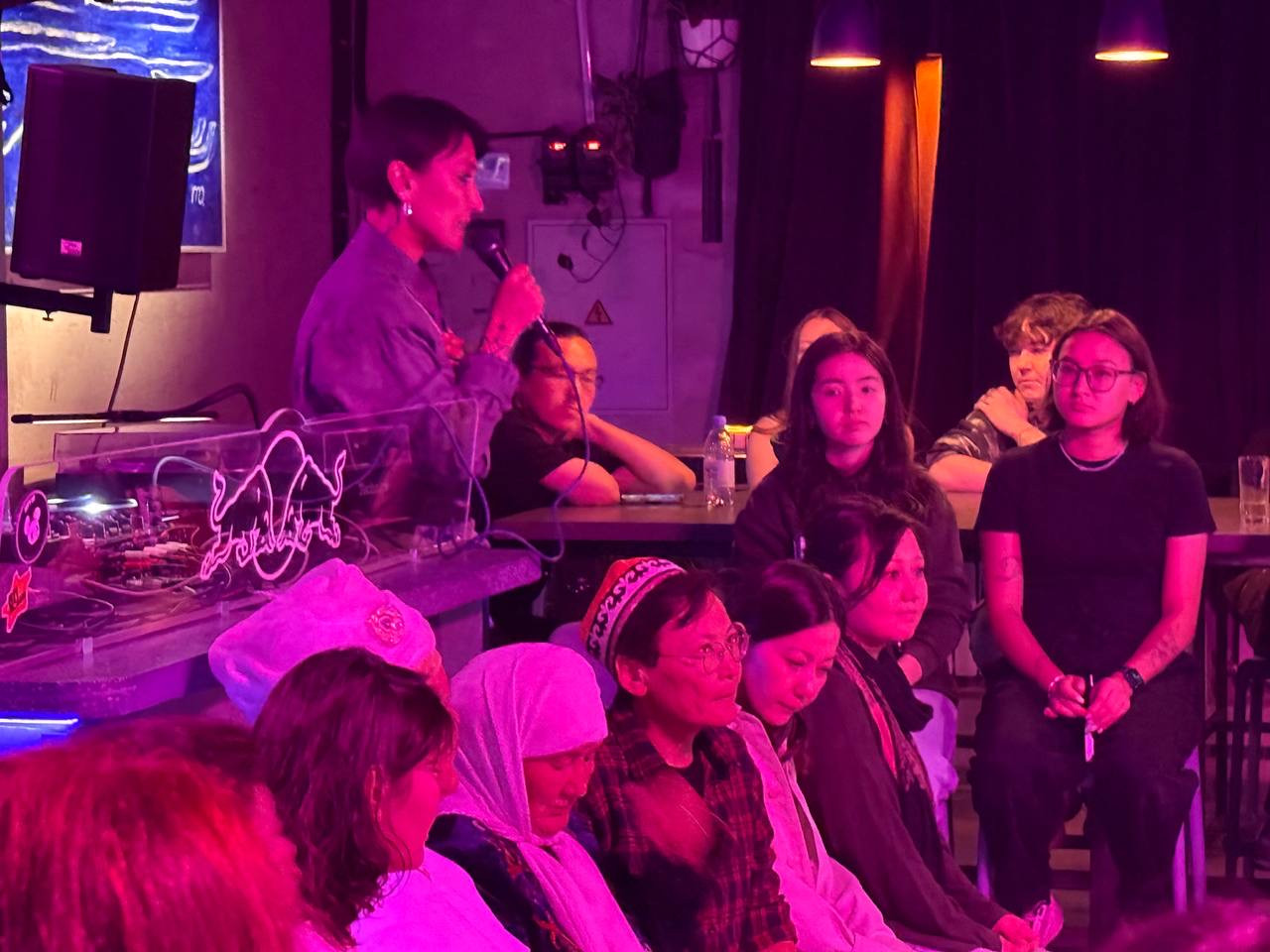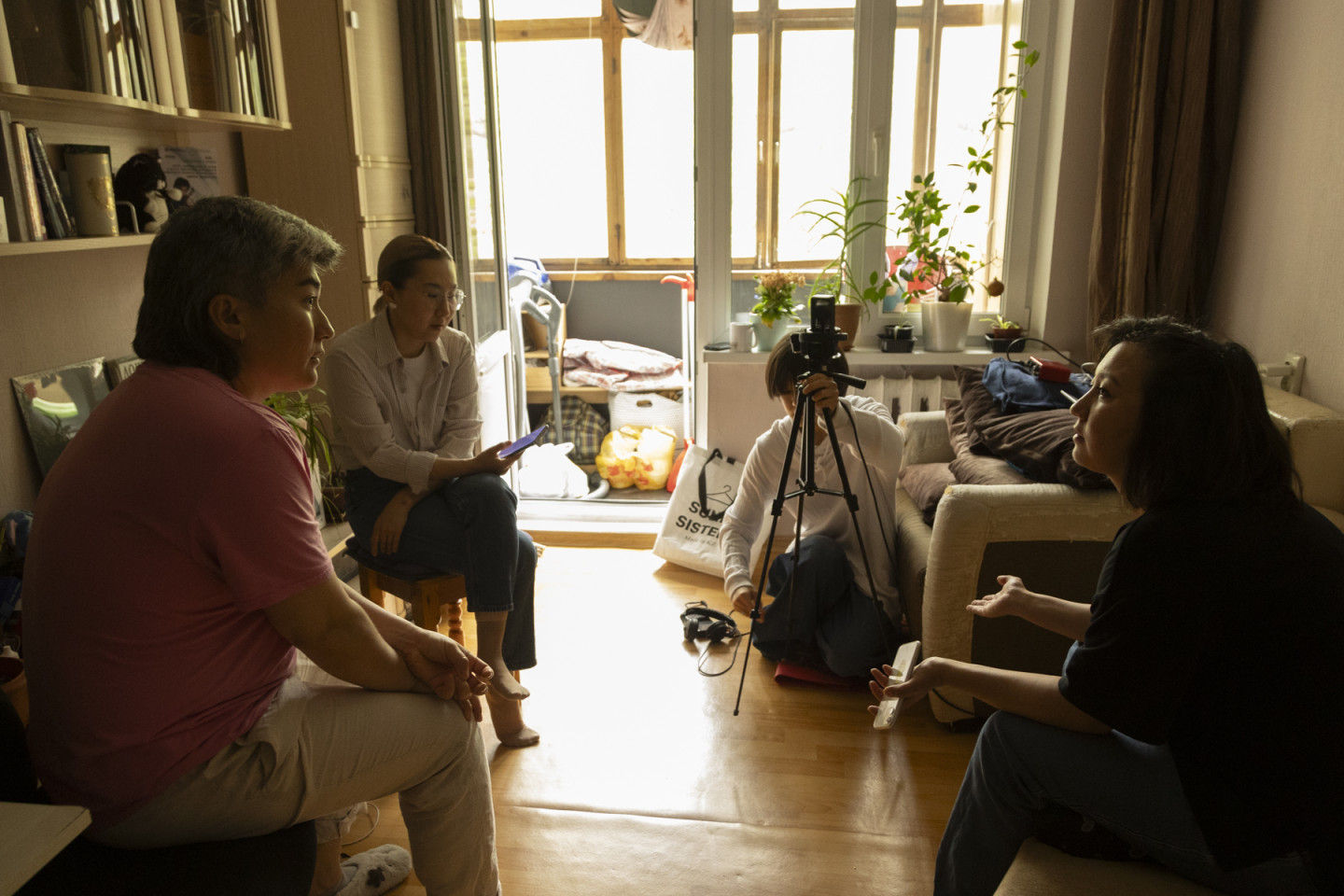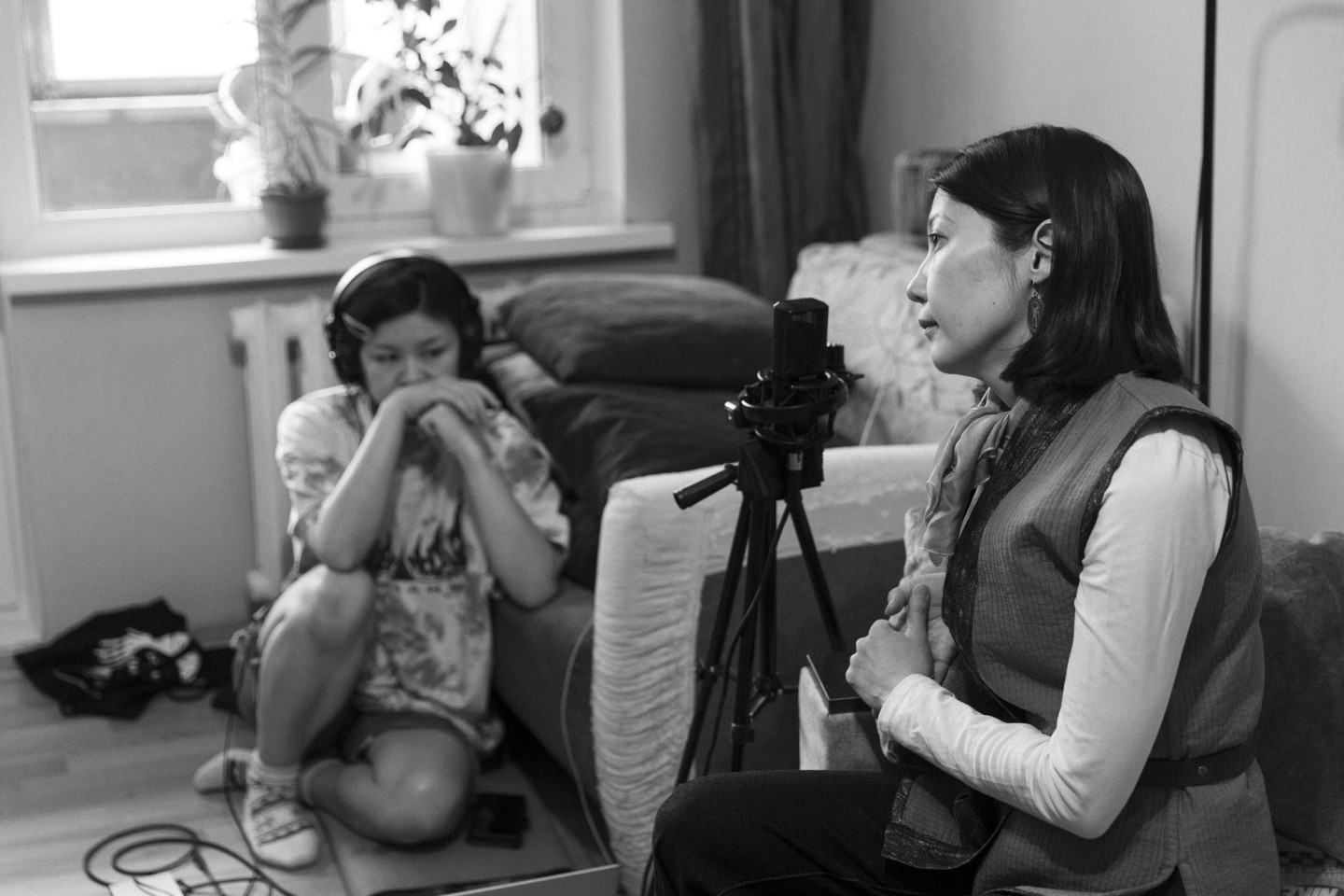Various activist and civil society initiatives are working on raising awareness of gender equality and women's rights in Kazakhstan, but there is still a lack of artistic and cultural discussion around the topic.
In November 2023, the death of the wife of an ex-minister has led to sparks of public calls to the issue of domestic violence against women. Various activist and civil society initiatives are working on this topic and raising awareness to gender equality and women’s rights. However, there is still a lack of artistic and cultural discussion around the topic in Kazakhstan. There are few instruments that bring the issue to a broader audience, including men, and demonstrations and public meetings by female NGOs are often blocked by the government.
The project Dybys: Female Voices Aloud opens an underrepresented and unheard chapter in contemporary Kazakhstan: the influence of women in social and political changes. When the project team set up the concept, the project partners from culture and civil society gave voice to the role of women in Kazakh society, the commitment to combating violence against women and the desire to make the voices of female collectives audible.
Opening a new needed space for public discourse on the role of women in contemporary Kazakhstan
Dybys seeks to illuminate the experiences of Kazakhstani women from various unheard groups, exploring their impact on societal, cultural, academic, and political transformations. The project invites listeners to delve into audio stories voiced by women of different generations and backgrounds, depicting their lives and struggles in both urban and rural settings across Kazakhstan.
These narratives especially emphasise the challenges faced by women, including LGBTQIA+ individuals, who confront significant prejudice, gender stereotypes, and discrimination. Highlighting the restricted access to safe and inclusive spaces, the project is particularly poignant for women from rural areas, facilitating their self-expression and exploration of gender identity.
The initiative features 12 audio stories (both in Kazakh and Russian), based on in-depth interviews with women who are changemakers or whose voices have traditionally been marginalised. Audio stories will be supplemented by original soundtracks symbiotically blending soundscapes, electronic music, and historical archive material. In addition, a special digital tool (Voice Constructor) will allow users to create their own story, using the voice distortion technology, a selection of soundscape recordings and electronic music samples.
Using research tools, urban history, technology, and art, this interdisciplinary project highlights the ongoing struggle for gender equality and rights for all societal groups, it creates unique digital platforms to amplify silenced voices and foster new expression, social engagement, and solidarity.
After conducting the research and interviews, and editing and publishing the videos, the project was presented in September in Almaty, in the presence of interviewees and an invite-only circle of interested audience in an intimate and trusting setting. On the project’s website, where the interviews are stored, each woman can become the author of her own story, create it, and add it to the library. The Voice Constructor is an invitation for everyone to take a seat, speak out, hear themselves, and be heard. Guests at the launch event were actively encouraged and guided to construct their own voice for future contributions to the project.
Find out more on the project website, which includes the interviews and the Voice Constructur (in Kazakh).
Alignment with UN Sustainable Development Goals
Dybys is based on democratic, sustainable, fair and holistic principles. The project contributes to the achievement of the Sustainable Development Goal as a whole and specifically with a focus on the following goals:
- SDG 5 - Gender Equality
The project gives an inclusive and safe space for all stakeholders, partners and actively foster gender equality in addressing it directly in our objectives. Our project ensures equal participation and representation, providing opportunities for unheard voices and perspectives, thus fostering the public dialogue fighting against discrimination, gender-based violence and social exclusion. Women and men of all age groups, members of the LGBTQIA+ community, people with disabilities, youth, academics, representatives of various ethnic groups and parents are specifically addressed as a target audience, as social transformation regarding equality can only be initiated together with all social groups. - SDG 11 - Sustainable Cities and communities
The project opens new places and spaces in very different cities for engaging with local communities and invites people to engage with them in an open, horizontal and democratically shaped way. Thereby developing solidarity networks in the regions and establishing communication between existing initiators and independent activists, artists and stakeholders.



